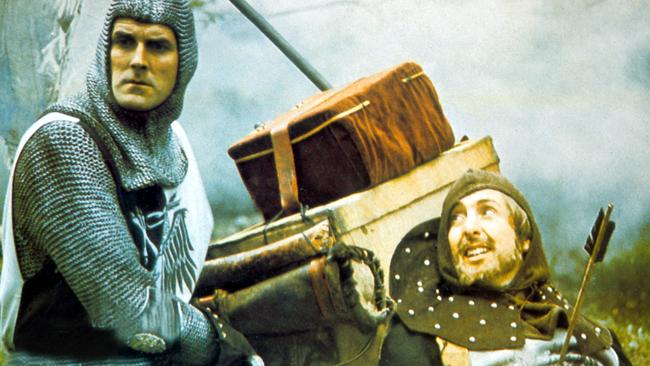BBC execs failed to see funny side of Monty Python’s Flying Circus
Newly unearthed documents prove not everyone was a fan of Monty Python’s Flying Circus at the BBC.

From the Ministry of Silly Walks to the dead parrot sketch, Monty Python’s Flying Circus is widely remembered as a classic from a golden age of comedy.
Newly unearthed documents show that some senior BBC managers did not see the funny side, however. The satirical sketch show was condemned as disgusting, sadistic and “simply not amusing” by executives responsible for assessing the broadcaster’s output.
Bill Cotton, the BBC’s head of light entertainment, said the second series in 1970 was so bad that the comedy group “seemed to have some sort of death wish”. Other executives complained that the values of the program were “nihilistic and cruel”.
Managers from rival BBC departments were particularly sceptical about the anarchic six-man troupe. Robert Reid, head of science and features, accused it of wallowing in “the sadism of their humour” and Aubrey Singer, head of features, complained that some of the skits were “disgusting”.
The corporation’s head of religious programming protested about a sequence in which paintings of Jesus and the Virgin and Child were animated, while the controller of BBC One lodged objections about the “appalling taste” of a death scene.
He was more positive about the communist quiz sketch in which Marx, Lenin and other revolutionary leaders answered pop culture trivia questions. “Quite hilarious,” was the verdict.
The candid views of executives attending the internal TV weekly review meetings are contained within a trove of Monty Python documents and photographs published by the BBC to mark the show’s 50th anniversary.
The first episode of Monty Python’s Flying Circus, starring John Cleese, Terry Gilliam, Eric Idle, Terry Jones, Michael Palin and Graham Chapman, aired on BBC One on October 5, 1969.
Its graveyard slot — 10.55pm on a Sunday — reflected the experimental nature of the Oxbridge graduates’ humour. Viewer reaction was broadly positive, however, and overcame the executives’ misgivings. Focus group research by the BBC found that about half of viewers “thoroughly enjoyed” the program. “It is outrageous and I love every minute of it,” one respondent said. A quarter of those surveyed were unfavourable bordering on hostile, dismissing the comedy as sick and infantile.
Documents released on the BBC History website’s Monty Python at 50 page also expose producers’ frustration at the group for lacing their scripts with potentially dangerous in-jokes.
The real address and phone number of TV presenter David Frost were mentioned in the original 1969 versions of two sketches, the Marriage Guidance Counsellor and The Mouse Problem. John Howard Davies, the producer, wrote to a colleague warning that he would be “castrated” if Frost’s personal details were not removed by the time the episodes were repeated.
BBC History is using the groundbreaking sketches as material to teach young people how to write comedy.
Monty Python’s Flying Circus ran for four series.
The Times


